Sometimes, the truth can be unbearable to hear. It’s why giving someone a reality check can quickly turn into a tension-filled scenario that, at worst, can put a strain on the relationship.
A mother learned this the hard way when she had to deal with her daughter’s self-centered attitude. While she understands that her behavior may come from a place of pain, she has also grown fed up with how it has affected everyone around.
The mom snapped one day while they were all in public, causing her daughter to bite back with harsh words of her own.
Giving someone a “reality check” can backfire on you

Image credits: undefinedstock / freepik (not the actual photo)
A woman experienced this with her older daughter, whom she’s had difficulty dealing with
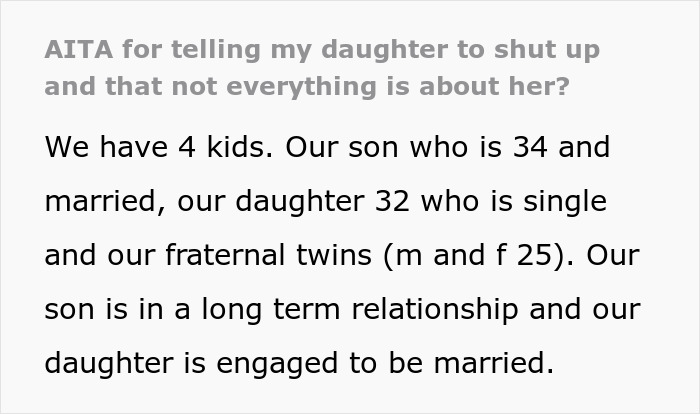
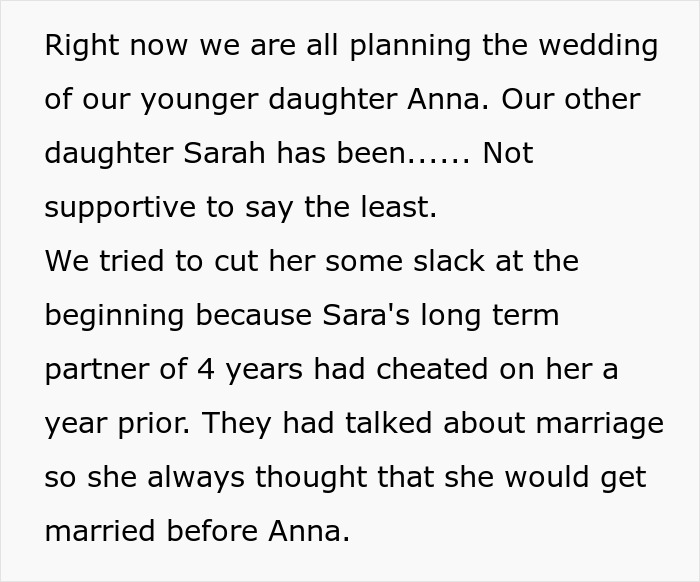
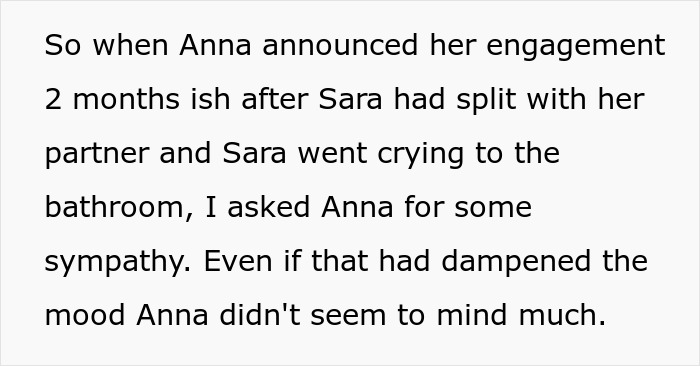

Image credits: freepik (not the actual photo)
Things blew up one day when she finally snapped
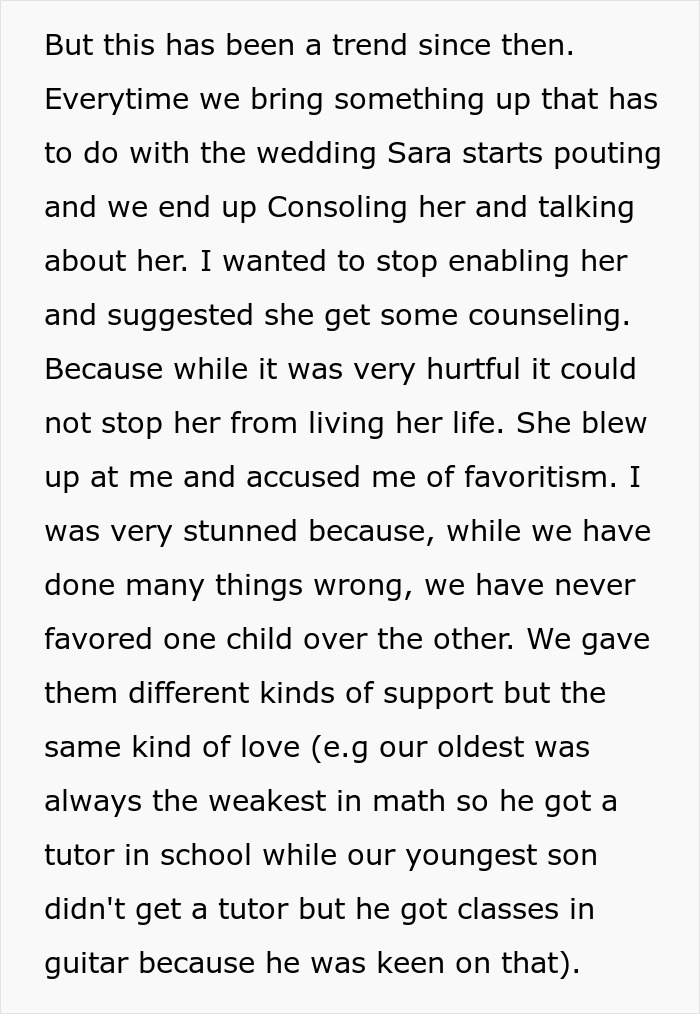

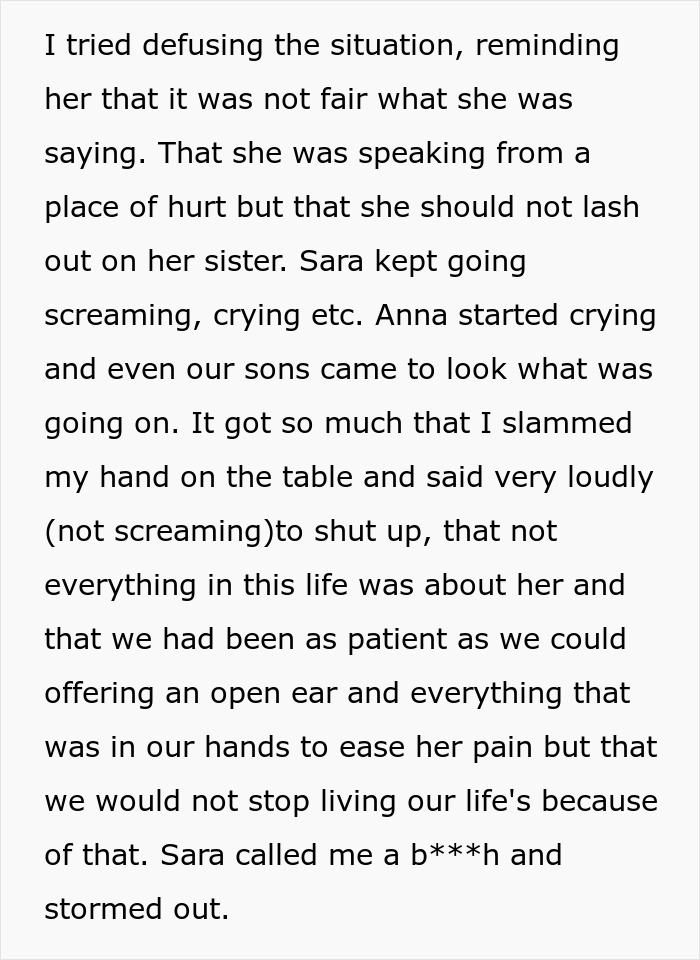

Image credits: lifestock / freepik (not the actual photo)
The mom provided some extra details to her story
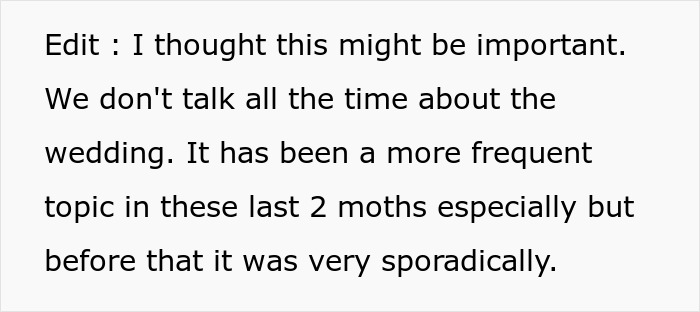

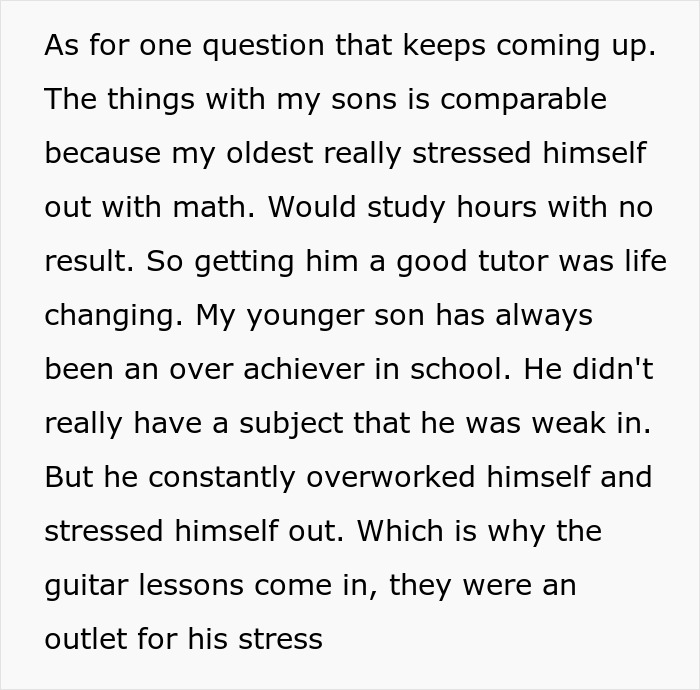
Image credits: mydaughterssplitiek
Angrily calling out an adult child can only make the situation worse
The mom’s incendiary reaction to Sara’s behavior while at the bridal store was seemingly out of frustration. It appeared to be pent-up anger from putting up with her daughter’s behavior, and her snapping was likely her boiling point.
While her response was understandable, it only made things worse. According to psychologist and parent coach Dr. Jeffrey Bernstein, parents should focus on showing understanding rather than responding with anger.
In his article for Psychology Today, he stated that parents can acknowledge their child’s perspective without necessarily agreeing with them.
Sara’s choice of words for her mom may also be an indicator of emotional wounds. In another article, Dr. Bernstein pointed out that blaming or faulting a parent may also be a result of unmet expectations and unresolved childhood trauma.
While these deep-seated issues require professional intervention, Dr. Bernstein shared some tips for dealing with an adult child, especially during moments when they are acting up. His first piece of advice: Don’t lecture your child about what you’ve done for them.
As Dr. Bernstein explained, demanding that they should “show some respect”—or in the story’s case, that Sara should stop making it about herself—is like “pouring gasoline on a slow-burning or ready-to-erupt fire.”
He also advises reframing conversations in a more understanding tone, like, “You may want to consider ___” or “It may make you feel better if you ___.”
The mom could’ve been more empathetic toward Sara, who was clearly dealing with something. At the very least, she could’ve not shamed her while they were in public. This does not excuse Sara’s behavior, but as the parent, it would’ve helped to have shown a bit of sensitivity.
The author provided more information by answering some questions
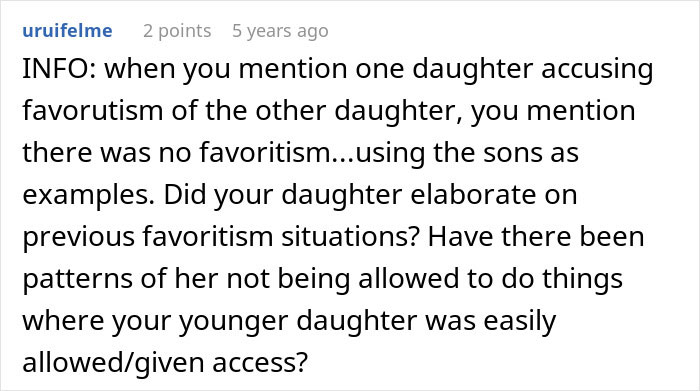
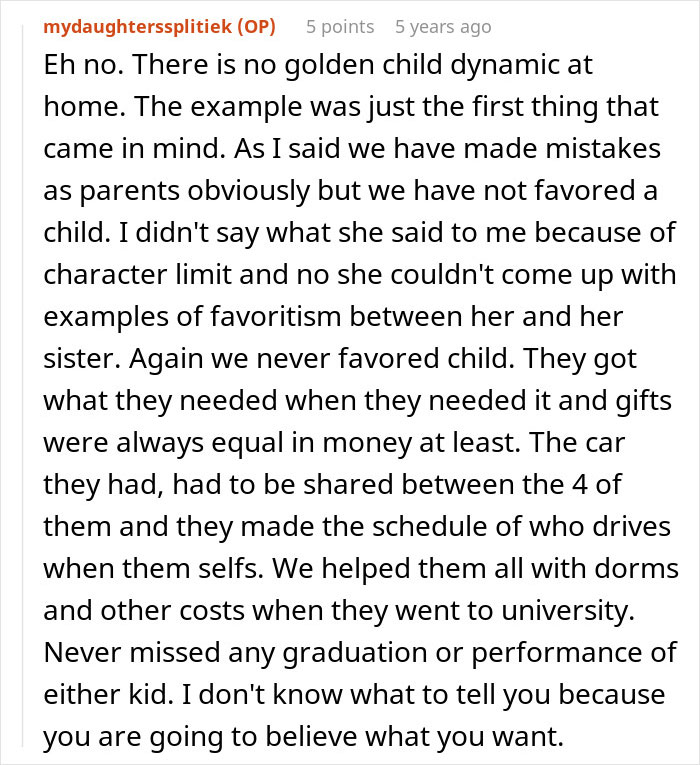
Many readers sided with her, stating her reactions were warranted because she’d been pushed long enough
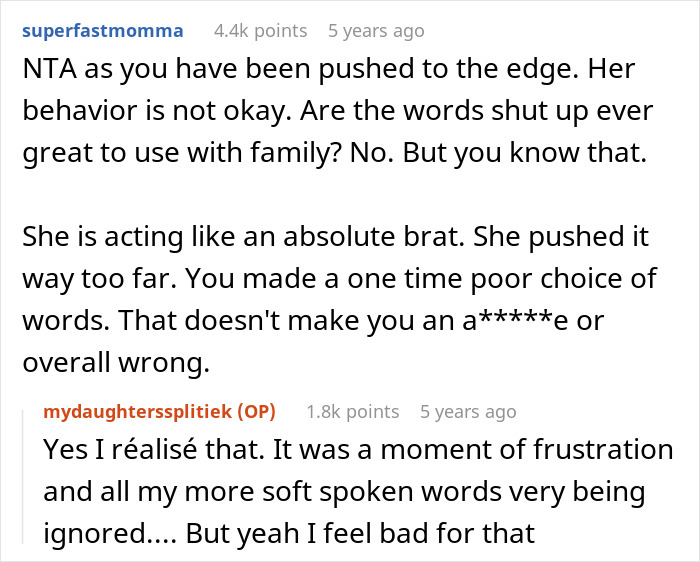
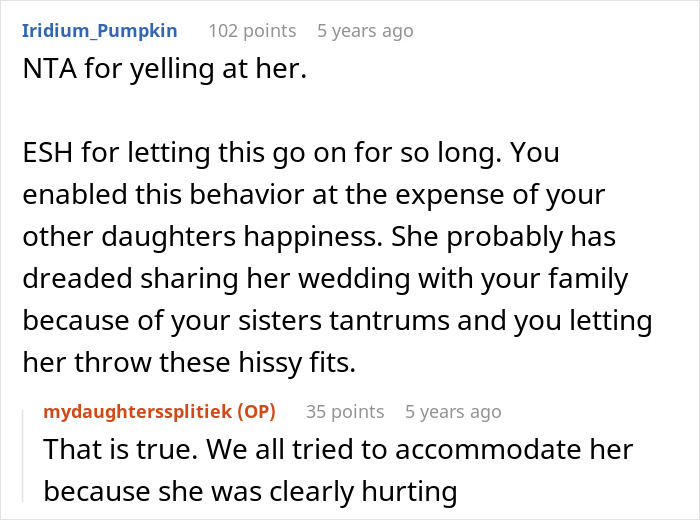


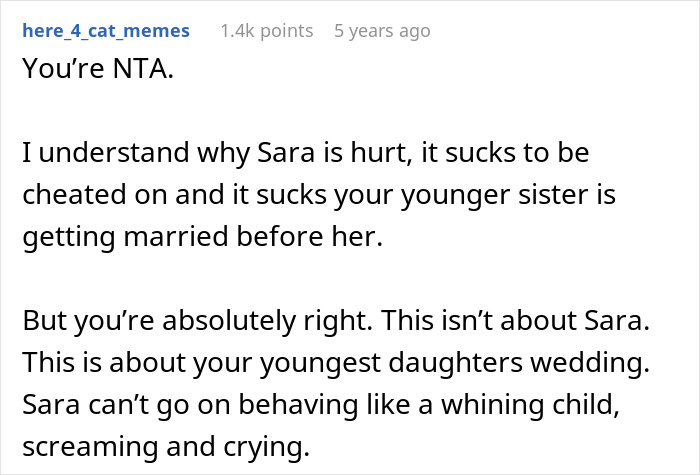
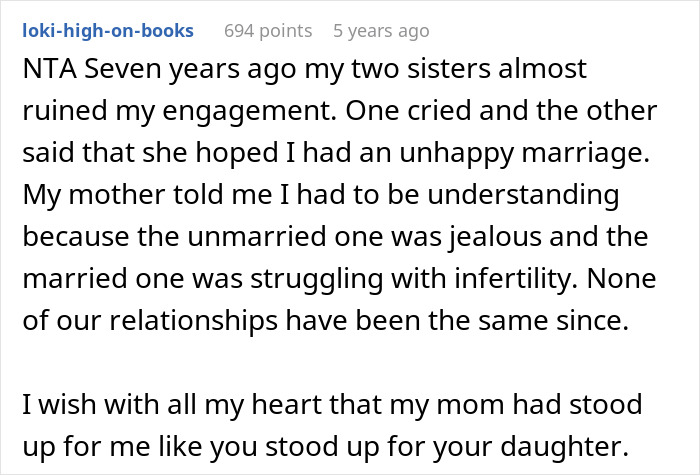
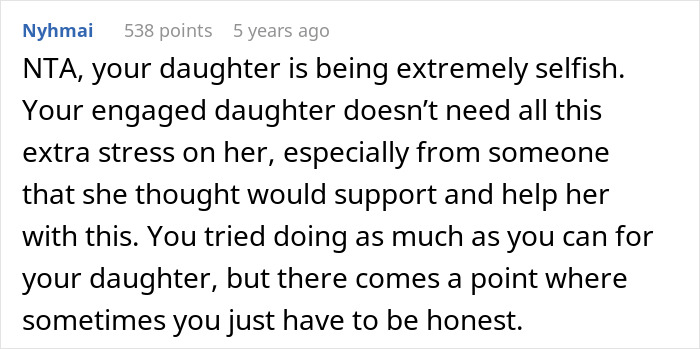
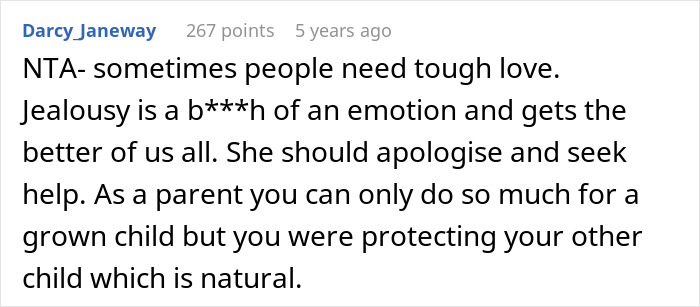

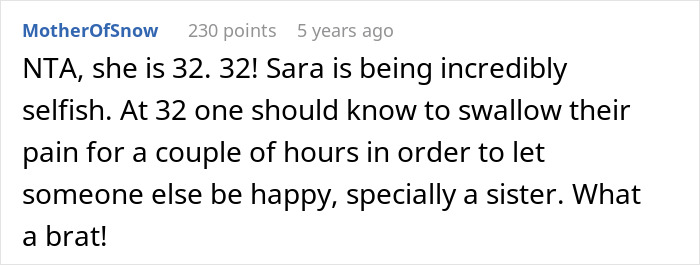
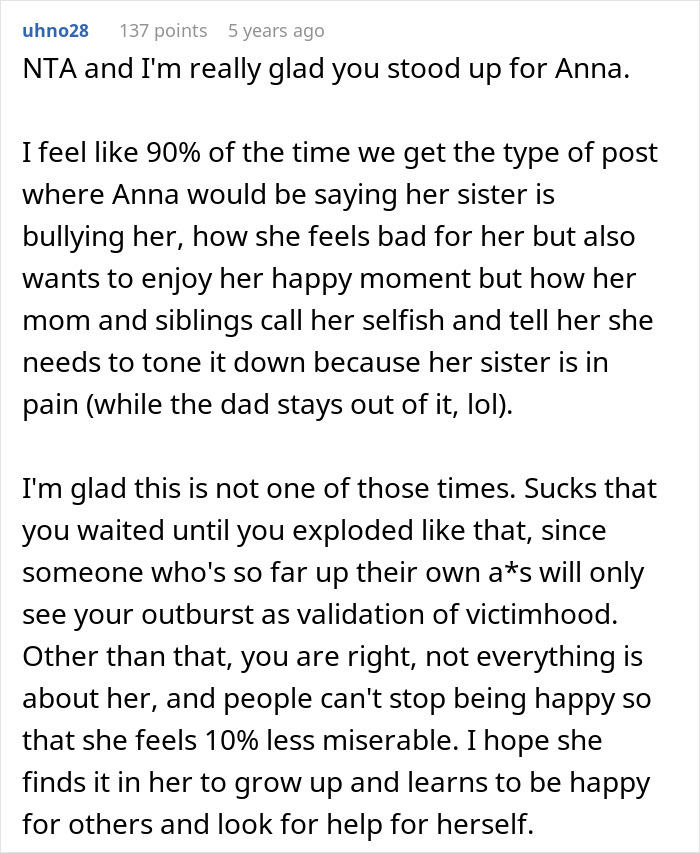
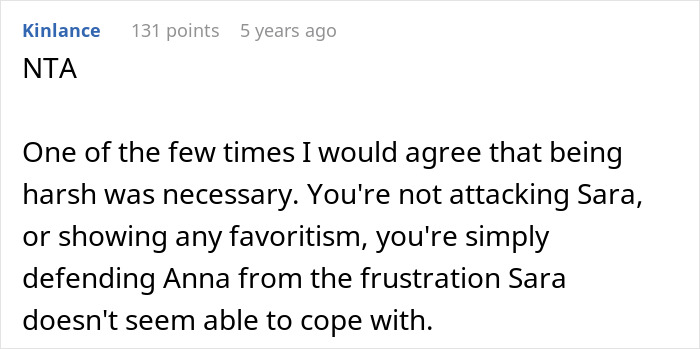

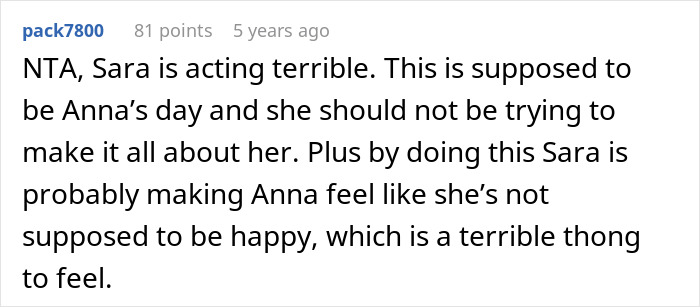

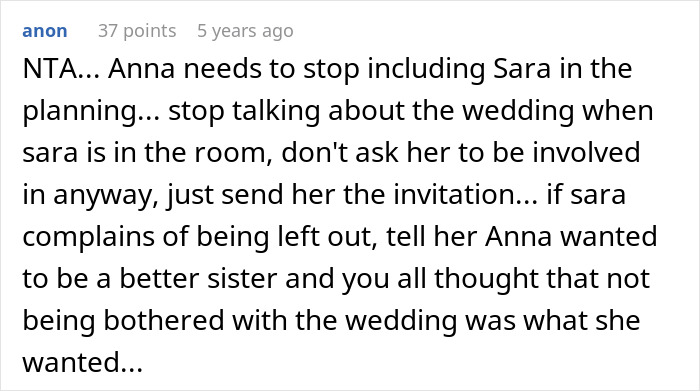
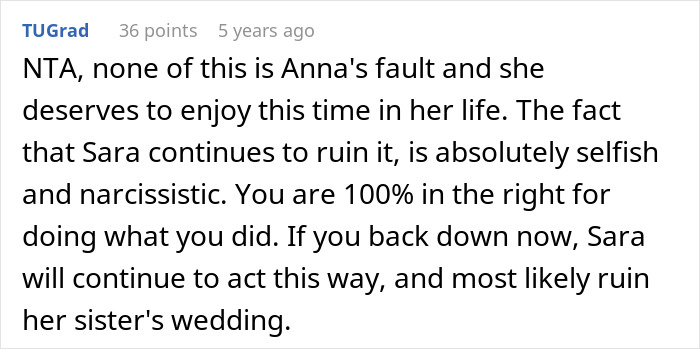
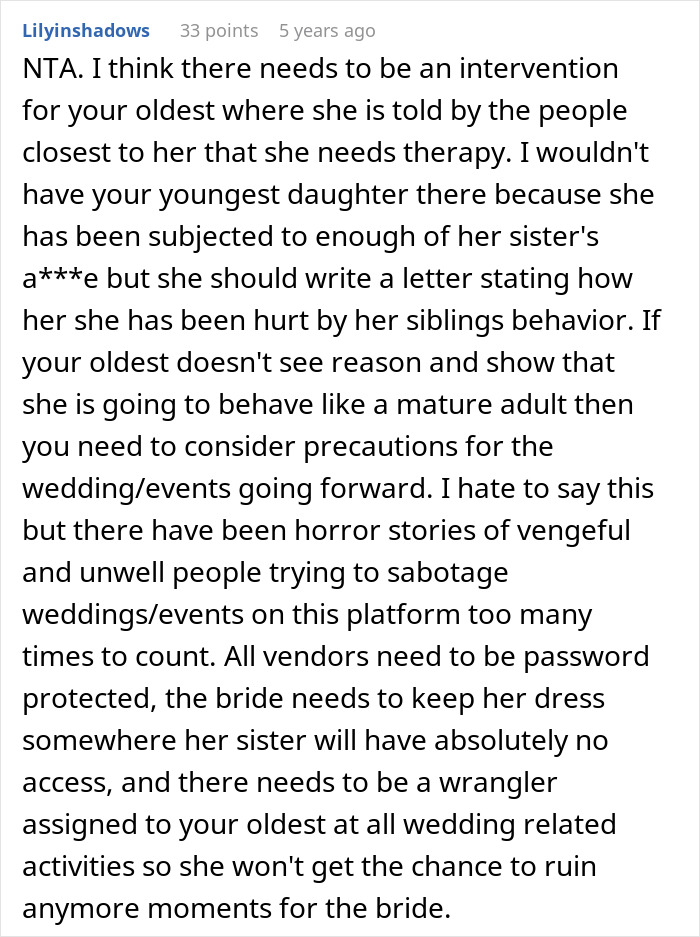
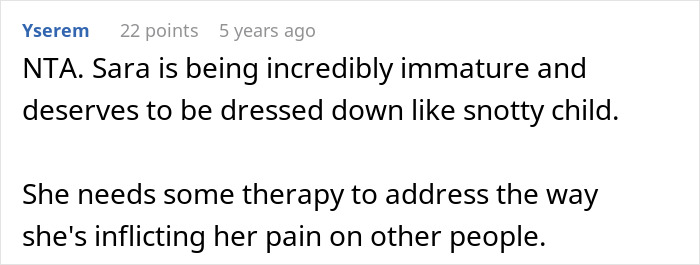


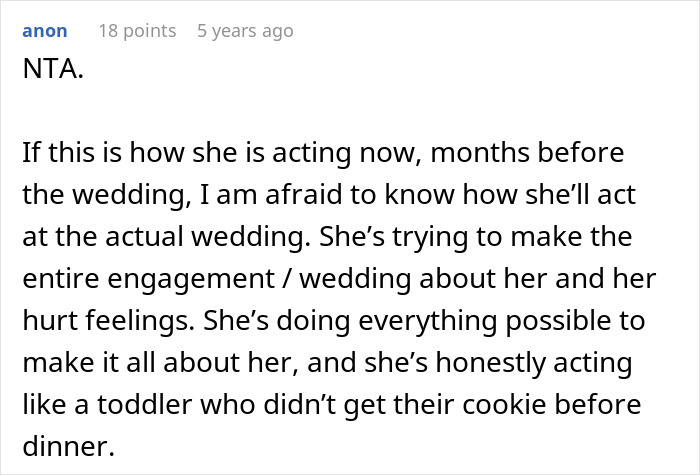
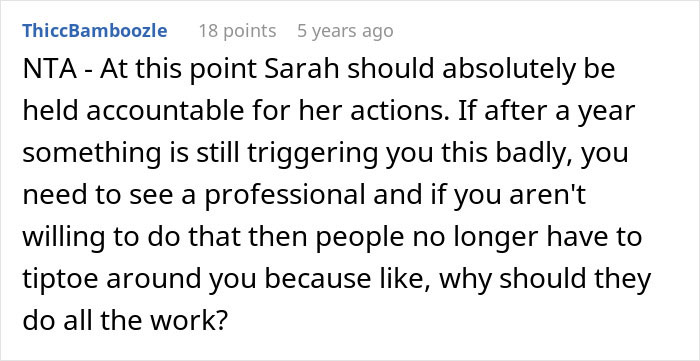
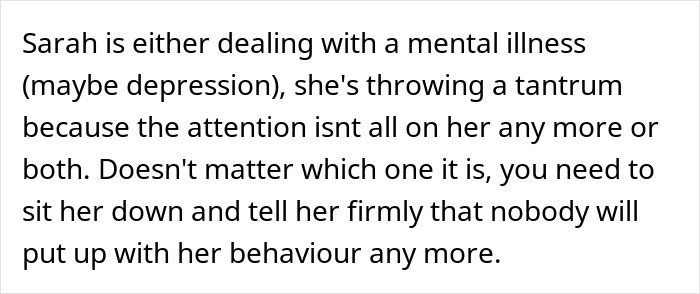
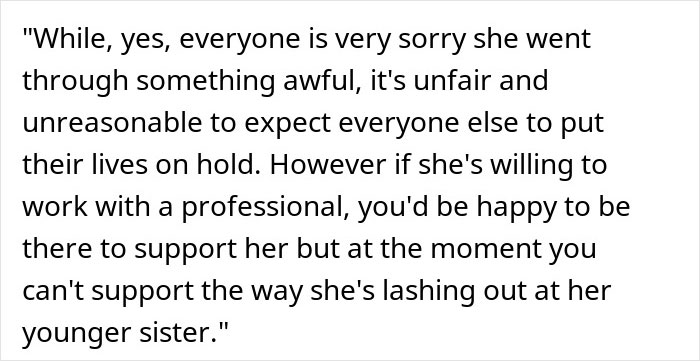
However, others criticized her for enabling her daughter’s behavior
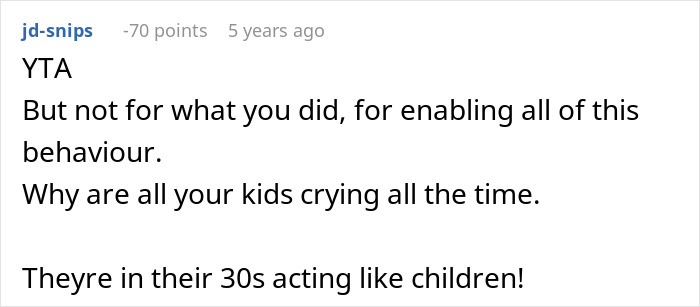
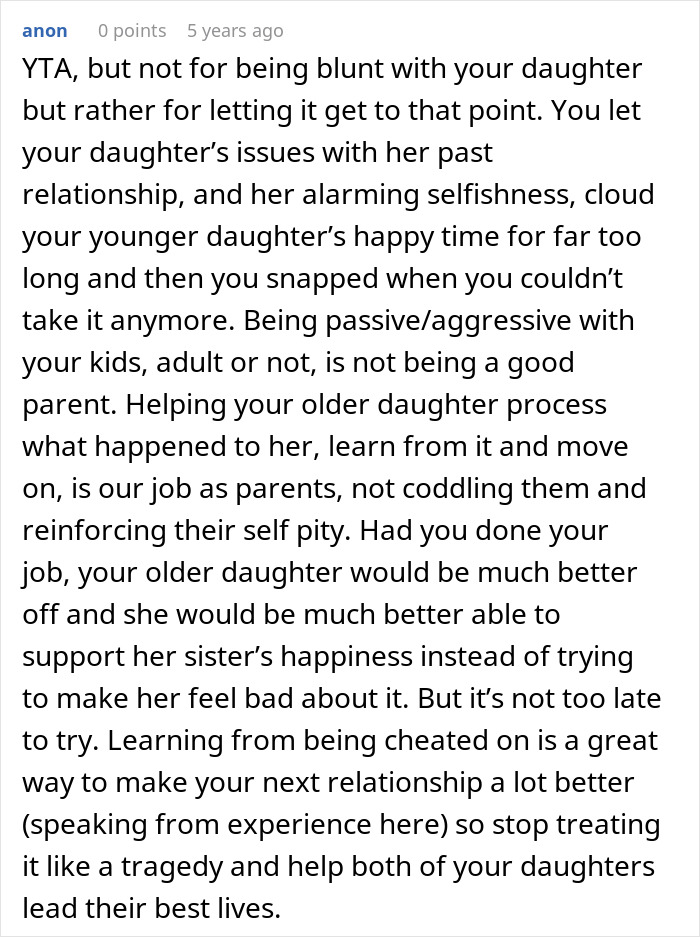
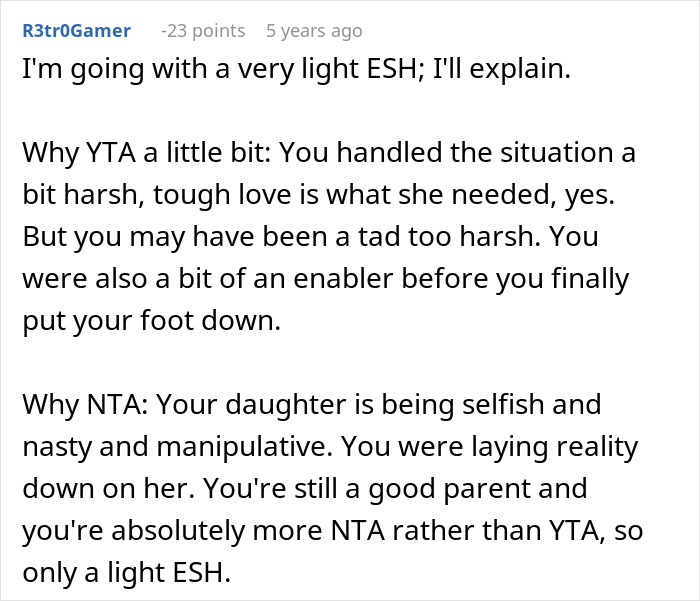
 Follow Us
Follow Us





